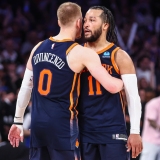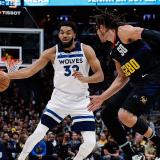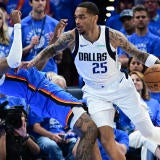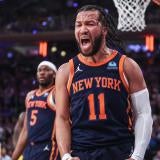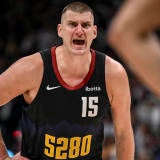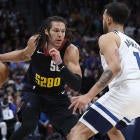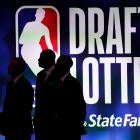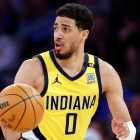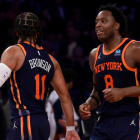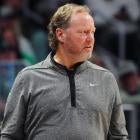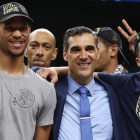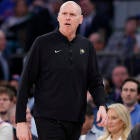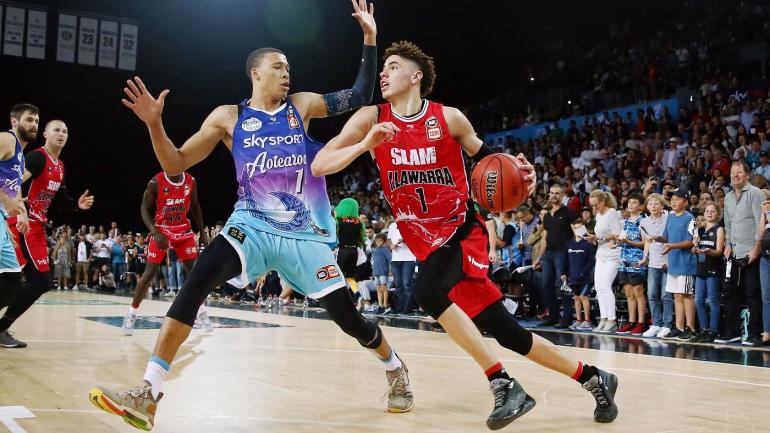
LaMelo Ball and the New York Knicks have been flirting for months. The Knicks have played it coy to preserve leverage, but reports have connected the two sides for months. So has LaVar Ball. He's stated explicitly that New York is the best fit for his son.
It's a match seemingly made in heaven, a point guard-needy Knicks team in a point guard-obsessed city nabbing one of the best passers ever to enter the NBA Draft, and a Hollywood ending for a family whose first passing prodigy flamed out in their hometown of Tinseltown. The draft's biggest star landing in a star-crazed market seemed, well, written in the stars, especially after the Ball patriarch spoke Lonzo Ball's Los Angeles landing into existence the last time around.
But the lottery gods disagreed. The Knicks didn't move up to No. 1. They didn't leap into the top four. They didn't even hold their position. They entered Thursday at No. 6 and left it at No. 8, which could easily leave them seven slots short of their supposed savior.
Or maybe it won't.
Ball isn't Zion Williamson, after all. He is a tantalizing but flawed prospect in a weak draft with no consensus top prospect. Without that consensus label, fit will matter more than ever. That won't do Ball any favors in a point guard-rich NBA.
Consider the seven teams slotted ahead of New York. The Detroit Pistons need a point guard at No. 7. But the top six? Their ball-handling situations aren't nearly as dire.
- The Minnesota Timberwolves at No. 1 just gave up a former No. 1 overall pick (Andrew Wiggins) and a 2021 first-round pick that won't be much lower to get a point guard in D'Angelo Russell. They're really going to spend another No. 1 pick on another?
- Reports have suggested that the Golden State Warriors aren't interested in Ball. They just went down the two-point guard path and dumped Russell when it didn't work.
- The Charlotte Hornets gave Terry Rozier a three-year, $58 million contract last summer and have already seen him outshined by former second-round pick Devonte' Graham. Rozier is a stickler for playing time. Adding a third point guard to the mix seems volatile.
- The Chicago Bulls have Zach LaVine, an All-Star candidate, and Coby White, who just averaged 26 points per game in his last nine appearances. Both are 25 or younger. Both are under team control for multiple seasons. The backcourt isn't a need.
- The Cleveland Cavaliers just spent back-to-back lottery picks on guards, and they spent two other first-round picks in the backcourt in 2019 alone. Ball is the last thing they need.
- The Atlanta Hawks have Trae Young. Why take the ball out of his hands?
Someone in that group could fall in love with Ball between now and the draft, but none have much incentive to do so. The board shook out in such a way that Ball could easily slide.
That could create a situation that the Knicks are all too familiar with. New York had the No. 8 pick in the 2009 NBA Draft as well. The Knicks fell in love with a point guard that had undeniable star-quality. That point guard wanted to play at Madison Square Garden. He even denied workouts with teams higher on the board to help make it possible. Miraculously, team after team in front of the Knicks passed. New York found itself one pick away from its prize before it was snatched right out of their clutches.
That point guard? Stephen Curry.
Detroit taking Ball wouldn't be quite as disastrous an outcome, and it's not a particularly likely one. For all of his flaws, Ball is a unique prospect, and someone, somewhere very high on the board, is going to want to take a chance on him. But the fact that none of them absolutely need him creates an opportunity. If the Knicks had known in 2009 what they know now, they would have paid Minnesota a king's ransom to jump ahead of Golden State and grab Curry. They stood still. But guess who controls Ball's future now?
Minnesota and Golden State, and unlike 2009, both could be eager to accommodate the Knicks... for the right price.
Minnesota gave away its 2021 first-round pick to get Russell in February. The Knicks could replace it with their own. Asset recovery is a worthwhile goal, especially when none of the draft's top prospects look like easy fits in Minnesota. Ball and Russell clash. Why take Anthony Edwards, a guard whose theoretical best trait is shooting, at No. 1 when Minnesota already has such a guard in Malik Beasley, whom they acquired at the deadline and saw averaged 20.7 points per game on 42.6% 3-point shooting until the hiatus? Karl-Anthony Towns is Minnesota's center. James Wiseman would be a luxury, and a strange one given Gerson Rosas' obsession with shooters. What the Timberwolves really need are defensive-minded wings. Players like Isaac Okoro and Devin Vassell should be available at No. 8
Golden State has no need for anyone in this class. The Warriors want to win right away. The Knicks can hardly offer that to them directly, but given the relatively low trade-value of this No. 2 overall pick in particular, potential sellers could be enticed into a volume package. If No. 2 and No. 8 have similar value to teams less desperate than the Knicks, than a package involving the two spare Dallas first-rounders burning a hole in their pocket could be appealing. Given the Clippers' pick they acquired at the deadline and an untouched collection of their own future selections, the Knicks have all of the ammunition they'd need to trade up... if that's still what they want.
And there are a number of valid arguments against doing so. Ball, to this point, is not a 3-pointer shooter. Neither are the two other core Knicks: Mitchell Robinson and R.J. Barrett. The pressure of Los Angeles didn't exactly help the NBA's oldest Ball, would New York be any better for the youngest? Would it be fair for any rookie to be anointed savior of these wayward Knicks? They just spent two decades' worth of picks on wild superstar goose chases. Jamal Murray, Joakim Noah, Gordon Hayward and LaMarcus Aldridge were all taken with picks the Knicks originally owned. The past few years have been geared specifically towards avoiding such regrets. Is Leon Rose really prepared to risk another one to move up, especially with a much stronger 2021 draft class coming up?
That's a decision for the front office to make because the point here isn't that trading up for Ball would be a good idea, but merely that is a possible one. Top-two picks are usually entirely untouchable. Had the Knicks asked for Zion Williamson or Ja Morant a year ago they would have been laughed off the phone.
But they've been eyeing a particular prospect for the better part of a year, and due to the unique circumstances of this draft, their unfortunate Ping-Pong balls haven't pushed that prospect beyond their grasp. Had the Knicks landed in the top few selections, the decision would be easy. But these things are never easy for the Knicks. It will now be up to Rose to decide just how far he's willing to go to get his man. The Ball, regardless of Thursday's lottery results, is still in his court.







